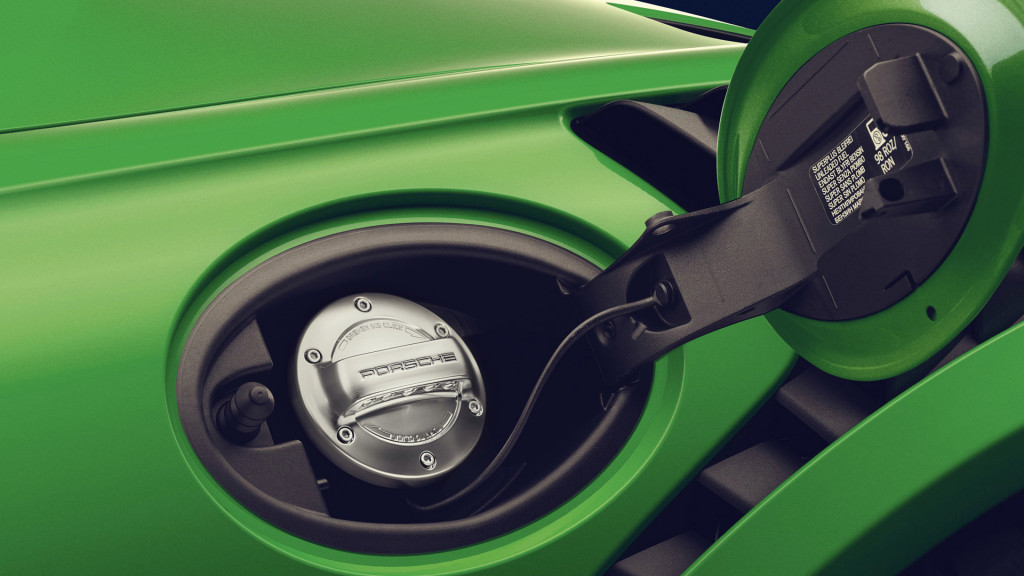Porsche is part of a consortium looking to test the feasibility of synthetic fuel as a solution for eliminating the carbon emissions of internal-combustion engines.
The consortium, which includes fellow German firm Siemens, plans to build a pilot plant in Chile that will be the world's first fully integrated plant capable of producing synthetic fuel at an industrial scale.
Known as Haru Oni, the plant will feature a wind turbine generating electricity to be used to split water into hydrogen and oxygen. The hydrogen will then be combined with carbon dioxide from the air to produce synthetic methanol. This methanol can then be used to create synthetic versions of gasoline and diesel and also kerosene which is used in aviation.
In a first stage that will run through 2022, the plant will be used to produce approximately 130,000 liters (approximately 34,340 gallons) of fuel. A second stage running through 2024 will see up to 55 million liters produced on an annual basis, and in a third stage running through 2026 the annual capacity will be increased to 550 million liters.

Porsche fuel filler cap
Approximately 40% of the generated fuel will be gasoline, of which Porsche will be the primary customer initially. The automaker plans to initially use it in various motorsport programs as well as at its Porsche Experience Centers. Porsche also sees synthetic fuel as a solution for keeping classic cars on the road for decades to come. This is crucial as around 70% of all Porsches ever made are still on the road.
Although it's more efficient to use electricity to directly power a battery-electric car, rather than create synthetic fuel to be fed into an internal-combustion engine, plants like Haru Oni show how renewable energy can be transported to where it's needed using existing infrastructure. It also shows how renewable energy will no longer need to be produced where it’s used, but where natural resources like wind and sun are available on a massive scale.
The challenge is generating the necessary hydrogen in a manner that makes synthetic fuel commercially viable, which projects like the Haru Oni plant aim to solve. According to Porsche, synthetic fuel currently costs $10 per liter to produce, the equivalent of $37 a gallon. The goal is to get the cost to down to the level of conventionally sourced fuel.
Even with the development of synthetic fuel, Porsche remains committed to electrification. The automaker expects 50% of its sales by 2025 to be electrified cars, split 40% battery-electric and 10% plug-in hybrid. Fuel cell-electric powertrains aren't on its radar, however.
